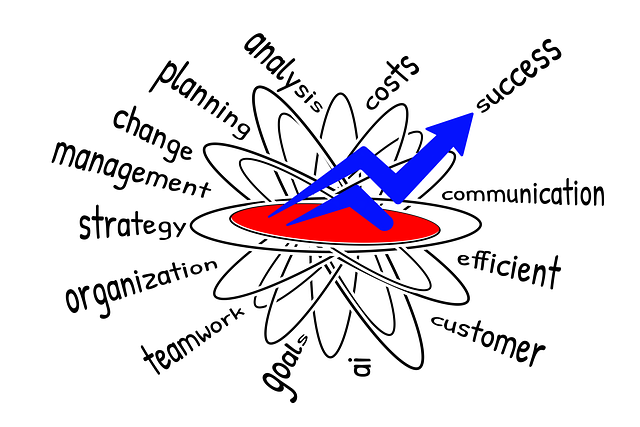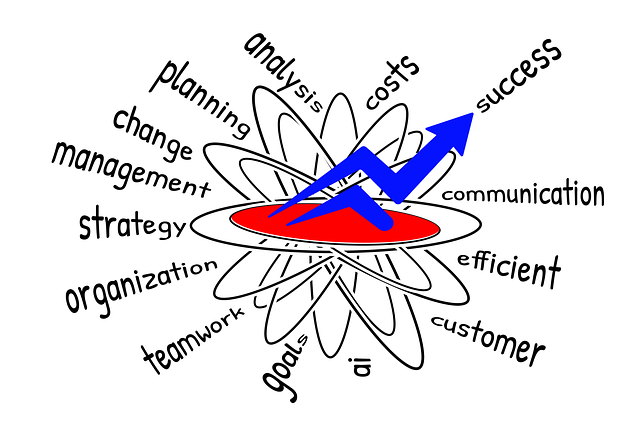In academia, precise translations are key for global scholarly communication. UK academic journals rely on top-tier translation services to maintain quality and credibility. Specialized companies offer expertise in diverse fields, ensuring cultural sensitivity and accurate rendering of complex terminology. Rigorous quality control measures, including editing and proofreading, guarantee intellectual integrity. Selecting these services requires prioritizing higher education and science expertise, fluency, natural phrasing, and a proven track record. Advanced technologies like machine translation memory streamline processes, while peer reviews uphold high standards. Cultural sensitivity is crucial to adapting academic papers for global audiences, enhancing accessibility and fostering international collaboration. The future of UK Academic Journals Translation Services involves technology integration, emphasizing efficiency and domain-specific expertise.
In the global academic landscape, ensuring quality in translations is paramount. For UK academic journals seeking international readership, precise and culturally sensitive translations are essential for effective communication of research. This article delves into the multifaceted aspects of high-quality academic translation services, exploring their role in enhancing research accessibility and dissemination through UK Academic Journals Translation Services. From language expertise to cultural sensitivity, we navigate the key considerations for choosing top-tier translation providers.
- Understanding the Importance of Quality in Academic Translations
- The Role of Professional Translation Services for UK Academic Journals
- Key Considerations when Choosing a Translation Provider
- Ensuring Precision: Language Expertise and Native Speakers
- Accuracy vs. Context: Balancing Two Critical Aspects
- Quality Assurance Processes in Academic Translation
- Handling Specialized Terminology and Jargon
- Cultural Sensitivity and Localization for Academic Papers
- The Impact of High-Quality Translations on Research Dissemination
- Future Trends in Academic Journal Translation Services
Understanding the Importance of Quality in Academic Translations

In the realm of academia, where ideas and knowledge are shared across borders, accurate translations play a pivotal role. For research papers, academic articles, and scholarly books to be accessible and impactful, they must be translated with precision and expertise. This is especially true when considering UK Academic Journals Translation Services, where the bar for quality is exceptionally high. Maintaining quality ensures that the original content’s integrity is preserved, facilitating effective communication among researchers worldwide.
A poor translation can introduce misunderstandings, distort data or arguments, and compromise the overall credibility of academic work. Therefore, it’s crucial to employ professional translators who understand not just the language pairs but also the nuances of academic discourse. Services dedicated to UK academic journals should be equipped to handle complex terminology, referencing styles, and formatting requirements, ensuring that translated content seamlessly integrates into existing scholarly narratives.
The Role of Professional Translation Services for UK Academic Journals

In the realm of academic discourse, ensuring quality in translations is paramount, especially for publications aiming to reach a global audience. UK Academic Journals often face the challenge of communicating complex ideas across languages while maintaining intellectual integrity. This is where professional translation services play a pivotal role. These specialized services not only offer expertise in various academic fields but also adhere to strict quality control measures, ensuring precise and culturally sensitive translations.
Professional translation companies catering to UK Academic Journals provide native-level language proficiency, guaranteeing that the translated content reads naturally and flows seamlessly. They employ linguists who are well-versed in academic writing styles and terminology, enabling them to capture the nuances of research papers, articles, and theses accurately. Moreover, these services often include editing and proofreading processes, refining the translation for consistency, grammar, and syntax, ultimately enhancing the overall quality of the academic publication.
Key Considerations when Choosing a Translation Provider

When selecting a translation service for academic journals aiming to reach a UK audience, several critical factors come into play. Firstly, expertise in higher education and scientific fields is essential to ensure the translation accurately conveys complex terminology and research findings. Look for providers with a proven track record in translating academic content, preferably with native English speakers on staff to guarantee fluency and natural phrasing.
Reputation and quality assurance processes are also vital considerations. Opt for companies that offer transparent quality control measures, such as peer review or editor checks, to maintain the highest standards. UK Academic Journals Translation Services should have a commitment to confidentiality and data security, especially when dealing with sensitive research documents.
Ensuring Precision: Language Expertise and Native Speakers

Precision is paramount in academic translations, especially for UK academic journals aiming to reach a global audience. The complex terminology and specialized language used in scholarly works demand experts who truly understand both the source and target languages. This is where professional translation services specializing in academic content come into play.
Employing language experts and native speakers ensures that technical terms are accurately translated, preserving the integrity of research and ideas. Native speakers grasp nuances and idiomatic expressions unique to their language, avoiding literal translations that might misinterpret the original meaning. By leveraging their deep knowledge of both linguistics and subject matter, these professionals deliver translations that are not just word-for-word but conceptually sound, ensuring UK academic journals maintain their quality and credibility when published internationally.
Accuracy vs. Context: Balancing Two Critical Aspects

In academic translation, achieving accuracy and preserving context are two paramount goals. While word-for-word precision is essential to convey the literal meaning, it’s equally crucial to understand the intended nuance within the source text. UK Academic Journals Translation Services often face the challenge of balancing these aspects, especially when dealing with complex scholarly content.
Contextual understanding involves grasping not just the meaning of individual words and phrases but also their role within the overall argument or discussion. Translators must be adept at transmitting this context, ensuring that the translated text accurately reflects the ideas and arguments presented in the original work. This requires a deep knowledge of both languages involved, as well as an appreciation for the academic discipline being translated.
Quality Assurance Processes in Academic Translation

Academic translation services play a vital role in facilitating global communication and knowledge exchange, particularly for UK academic journals aiming to reach international audiences. To ensure quality, translation service providers implement rigorous Quality Assurance (QA) processes. These often involve multiple stages of review and editing to catch even the subtlest errors or nuances lost during translation.
One common approach is the use of in-house linguists who are subject matter experts in academic fields, ensuring accuracy in technical terminology. External peer reviews and proofreading services are also integral to QA, providing an independent perspective on the translated work. Advanced technology, such as machine translation memory and term bases, aids in maintaining consistency across documents, while automated quality checks help identify repetitive errors efficiently. These processes collectively contribute to delivering precise and reliable translations that meet the high standards required in the UK academic journal industry.
Handling Specialized Terminology and Jargon

When translating academic texts for UK academic journals, one of the most significant challenges is navigating specialized terminology and jargon. These terms are often industry-specific and require a deep understanding of the subject matter to convey their precise meaning in another language. Translation services specializing in academic journals employ linguists with expert knowledge in various fields to handle this delicate task. They meticulously research and match terms, ensuring accuracy and consistency throughout the text.
To maintain quality, these services often use terminology databases and glossaries specific to the academic discipline. This ensures that technical terms are translated correctly and consistently, preserving the integrity of the original work. Additionally, peer review processes within UK academic journals further scrutinize translations, upholding high standards and ensuring the accuracy of specialized terminology in published research.
Cultural Sensitivity and Localization for Academic Papers

When translating academic papers for publication in UK academic journals, cultural sensitivity and localization are paramount. The process involves not just rendering words from one language to another but also ensuring that the translated content accurately reflects the original meaning while being culturally appropriate for the target audience. This includes understanding nuances, idioms, and references specific to both languages and cultures. For instance, a term that sounds harmless in the source language might carry negative connotations or lack familiarity in the target culture.
UK Academic Journals Translation Services employ linguists who are not only fluent in both languages but also have deep cultural insights. They navigate the complexities of academic terminology while adapting content for local readers. This involves more than just replacing words; it’s about conveying ideas, preserving scholarly integrity, and making the paper accessible to a diverse range of readers. Effective localization ensures that the translated article resonates with its audience, enhances comprehension, and upholds the high standards expected in UK academic journals.
The Impact of High-Quality Translations on Research Dissemination

In today’s global academic landscape, high-quality translations play a pivotal role in facilitating the dissemination of research across borders. Accurate and nuanced translations ensure that scholarly works, published in various UK academic journals, reach a diverse readership worldwide. This is particularly crucial for researchers, students, and institutions aiming to contribute to and access international knowledge pools.
When research articles are translated by professional services, they not only preserve the original meaning but also adapt them for cultural relevance. This enhances accessibility, encourages interdisciplinary collaboration, and fosters a true exchange of ideas on a global scale. UK Academic Journals Translation Services, when employed effectively, become enablers of international academic discourse, ensuring that no language barrier impedes progress in knowledge sharing.
Future Trends in Academic Journal Translation Services

The future of academic journal translation services in the UK is poised for significant evolution, driven by technological advancements and a growing demand for specialized knowledge. Automation and Machine Translation (MT) are set to play a pivotal role, offering enhanced speed and efficiency while maintaining linguistic accuracy. AI-powered tools can now handle complex sentence structures and semantic nuances, bridging the gap between source and target languages with impressive precision. This trend promises to revolutionize the industry, making high-quality translations more accessible and affordable for UK academic journals.
Additionally, there will be a greater emphasis on cultural adaptation and domain-specific expertise. As research becomes increasingly globalized, translators must possess not just linguistic proficiency but also a deep understanding of the subject matter. This shift will ensure that academic content is accurately conveyed, preserving the original intent and scientific integrity. UK Academic Journals Translation Services will need to adapt by investing in training programs and attracting specialists who can navigate the intricate landscape of academic discourse across different disciplines.
In ensuring the global accessibility and impact of UK academic journals, high-quality translation services play a pivotal role. By carefully navigating key considerations such as language expertise, cultural sensitivity, and precise terminology handling, academic translators facilitate effective knowledge exchange. The ultimate goal is to preserve the integrity of research while reaching diverse audiences worldwide, thereby enhancing the dissemination and influence of scholarly works in the global academic community. UK Academic Journals Translation Services thus become essential game-changers in expanding the reach and impact of academic research.
